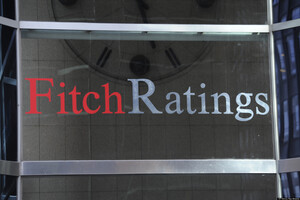The agency predicts that inflation in Ukraine will accelerate to 30% by the end of the year.

International rating agency Fitch Ratings raised the long-term credit rating of Ukraine in foreign currency from the level of “RD” (limited default) to “CC” (probable default).
The agency notes that the rating increase became possible after the implementation of the restructuring request foreign debt on August 11.
“Nearly $6 billion in principal and interest on Ukrainian Eurobonds was deferred for 24 months, easing external debt service pressure in the context of weakening international reserves and acute war-related spending needs. Restructuring was approved by 75% of bondholders (by aggregate principal amount), which exceeds the minimum required of 66.7%,” Fitch notes.
At the same time, analysts indicate that the “CC” rating reflects unresolved debt sustainability risks , which is the result of Russia's attack.
The agency notes that the war is likely to continue into 2023, pushing public debt above 100% of GDP and adding to already huge costs to infrastructure and the economy, as well as increasing inflationary and external pressures. At the same time, the sources of financing the deficit of the Ukrainian budget remain uncertain.
Fitch forecasts a contraction of the Ukrainian economy by 33% this year, with a slight recovery of 4% in 2023. At the same time, inflation will accelerate from 22.2% in July to 30.0% by the end of 2022 due to monetary financing, disruptions in the supply chain, weak transmission of monetary policy and devaluation of the hryvnia, and will remain high in 2023 at an average level of 20% .
“We do not believe that there has been a significant change in the default risk of Ukraine's national currency debt after the downgrade of the long-term RDE rating in the national currency to “CCC-” on July 22. The lower risk of default than for foreign currency debt partly reflects the government's greater reluctance to restructure domestic currency debt, given that 47% is held by the NBU, another 40% by banks and only 6% by non-residents, and the absence of strong international pressure to attract domestic debt to the restructuring process,” the analysts added.
Read also: Inflation in Ukraine: NBU missed the mark with its forecasts for July
Related video
We would like to remind you that at the end of last week the international rating agencies S&P and Fitch downgraded Ukraine's foreign currency ratings. In particular, Fitch lowered the country's long-term foreign currency rating from C to RD, as it considers the postponement of debt payments to be the completion of the exchange of problematic debt.




